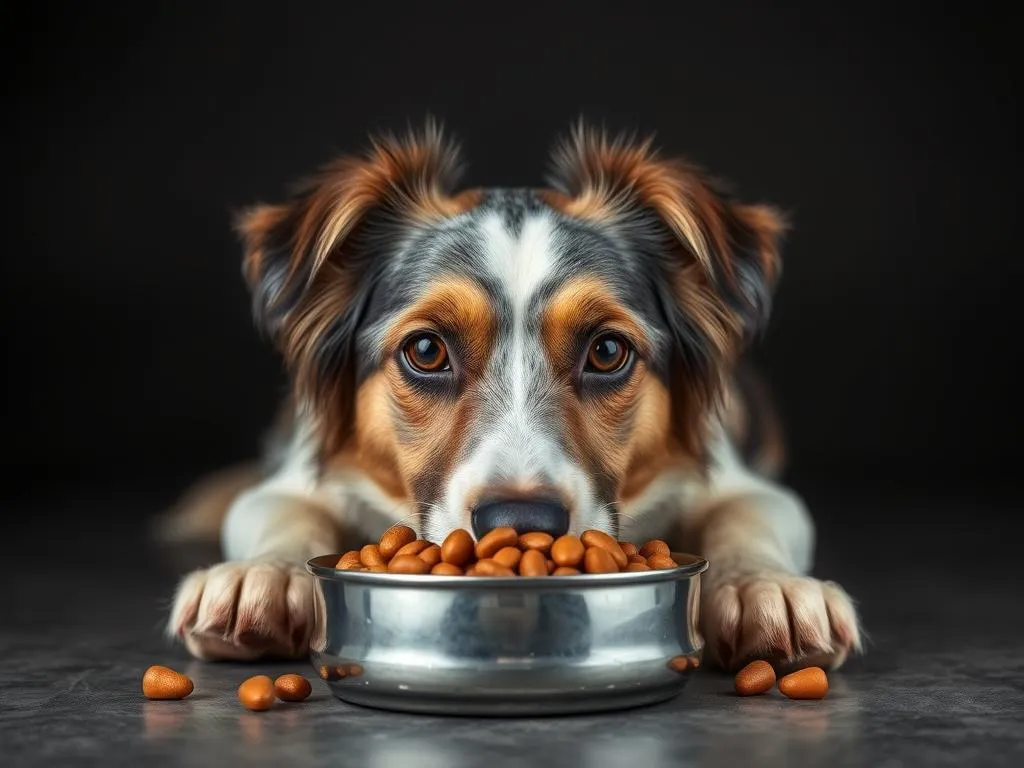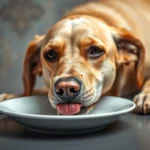
Introduction
Nutrition plays a pivotal role in a dog’s overall health and appearance. A healthy diet not only supports vital bodily functions but also reflects outwardly through a dog’s coat. A shiny coat is often a sign of good health, indicating that your furry friend is well-nourished and receiving the right balance of nutrients. In this article, we will explore the best dog foods for shiny coats, detailing the essential ingredients that contribute to a lustrous appearance and overall well-being.
Understanding Dog Nutrition
Basic Nutritional Requirements
To achieve the best results in coat health, it’s essential to understand the basic nutritional requirements for dogs.
Macronutrients consist of proteins, fats, and carbohydrates, which are crucial for energy and overall bodily functions.
- Proteins serve as the building blocks for cells and tissues. They are vital for healthy skin and fur, as they provide the necessary amino acids for growth and repair.
- Fats are essential for absorbing fat-soluble vitamins and providing energy. They also play a significant role in maintaining a shiny coat.
- Carbohydrates offer energy but should be balanced to avoid weight gain.
Micronutrients such as vitamins and minerals play a crucial role too, particularly in promoting coat health. Essential vitamins like A, E, and B-complex contribute significantly to skin and coat vitality, while minerals like zinc are vital for skin repair and health.
Importance of Balanced Diet
A balanced diet is integral to overall health. It directly impacts skin and coat condition, as deficiencies can manifest as dull fur, excessive shedding, or skin issues.
Common nutritional deficiencies to look out for include:
- Fatty acid deficiency: Can lead to dry, flaky skin and a lackluster coat.
- Protein deficiency: May result in hair loss and poor coat condition.
- Vitamin deficiencies: A lack of vitamins can lead to a range of skin problems.
By ensuring your dog receives a balanced diet, you can significantly improve their coat’s shine and overall health.
Key Ingredients for a Shiny Coat
Essential Fatty Acids
Omega-3 and Omega-6 fatty acids are foundational to maintaining skin and coat health. These fatty acids help to reduce inflammation and promote a healthy skin barrier.
- Omega-3 fatty acids, found in fish oils and flaxseed, can also help alleviate itchy skin, making them especially beneficial for dogs with allergies.
- Omega-6 fatty acids, found in vegetable oils and animal fats, are essential for maintaining skin hydration and elasticity.
Quality Proteins
The importance of protein in coat health cannot be overstated. Proteins are made up of amino acids, which are necessary for the growth and repair of skin and fur.
Best protein sources for dogs include:
- Chicken: A lean source of protein that is easily digestible.
- Beef: Offers high-quality protein along with essential iron.
- Fish: Not only provides protein but also essential fatty acids.
- Plant-based options: Such as lentils and peas can be beneficial, especially for dogs with specific dietary needs.
Vitamins and Minerals
Several vitamins and minerals are essential for maintaining a shiny coat:
- Vitamin E: Acts as an antioxidant, protecting skin cells from damage and promoting healthy skin.
- Zinc: Plays a vital role in skin health and promotes a shiny coat.
- Other essential vitamins: Vitamin A supports skin health, while B-complex vitamins contribute to overall vitality and coat condition.
Factors to Consider When Choosing Dog Food
Age and Breed
Nutritional needs vary significantly based on a dog’s age and breed.
- Puppies require more calories and protein to support their rapid growth.
- Adult dogs need a balanced diet to maintain their health.
- Seniors may require lower calorie counts and specific nutrients to support aging bodies.
Breed-specific needs also play a role. For example, large breeds may require different nutrient ratios compared to small breeds to support their unique health requirements.
Health Conditions
Certain health conditions necessitate specific dietary considerations:
- Skin allergies: Dogs with sensitive skin may benefit from hypoallergenic foods or those containing limited ingredients.
- Weight management: It’s essential to balance a dog’s diet to maintain a healthy weight while still promoting a shiny coat.
Allergies and Sensitivities
Identifying and avoiding common allergens is crucial for maintaining coat health. Some dogs may react poorly to certain ingredients, leading to skin issues and dull coats.
Hypoallergenic dog food options can be beneficial for dogs with known sensitivities. Consulting with a veterinarian can help you identify the best options for your pet.
Top Dog Foods for Shiny Coats
Dry Dog Foods
- Brand A (Example: Royal Canin): Features high-quality protein sources and essential fatty acids, promoting a shiny coat.
- Brand B (Example: Orijen): Known for its high protein content and inclusion of fresh ingredients that support overall health.
- Brand C (Example: Wellness CORE): Offers grain-free options rich in omega fatty acids and antioxidants for enhanced skin health.
Wet Dog Foods
- Brand D (Example: Blue Buffalo Homestyle): Contains real meat and wholesome ingredients that contribute to a shiny coat.
- Brand E (Example: Merrick Grain-Free): Rich in omega fatty acids and nutrients that support skin and coat health.
- Brand F (Example: Pedigree Chopped Ground Dinner): Provides a balanced diet with essential vitamins and minerals for overall health.
Homemade Dog Food Options
Preparing homemade dog food can be a rewarding way to ensure your dog receives the nutrients needed for a shiny coat. Here are some ingredients to include:
- Lean meats: Chicken, turkey, or fish for protein.
- Vegetables: Carrots, sweet potatoes, and spinach for vitamins.
- Grains: Brown rice or quinoa for energy.
Safety and nutritional balance is critical when preparing homemade meals. Always consult with a veterinarian or pet nutritionist to ensure your dog’s diet is complete and balanced.
Additional Tips for Maintaining a Shiny Coat
Regular Grooming
Grooming is an essential part of maintaining a shiny coat.
- Brushing techniques: Regular brushing helps remove dead hair and distribute natural oils. Use tools suitable for your dog’s coat type.
- Bathing tips: Choose a gentle, dog-friendly shampoo, and bathe your dog as needed to avoid stripping natural oils.
Hydration
Water plays a vital role in maintaining skin and coat health.
- Importance of water: Hydration is crucial for skin elasticity and preventing dryness.
- Encouraging hydration: Ensure fresh water is always available, and consider offering wet food to increase moisture intake.
Supplements
In some cases, it may be beneficial to consider supplements to promote coat health.
- When to consider supplements: Situations such as dietary deficiencies, aging, or skin issues may require additional nutrition.
- Recommended supplements: Fish oil can enhance coat shine, while biotin supports skin health.
Conclusion
In summary, a balanced diet rich in essential nutrients is vital for achieving a shiny coat in dogs. By focusing on high-quality ingredients, understanding your dog’s specific nutritional needs, and considering factors like age and health conditions, you can significantly improve their coat’s appearance. Always consult with a veterinarian for personalized advice and to ensure your pet receives the best possible nutrition tailored to their unique needs.
FAQs
What are the signs of a shiny coat?
A shiny coat is characterized by a smooth texture, vibrant color, and an overall healthy appearance, indicating good nutrition and skin health.
Can I feed my dog human food for a shiny coat?
Some human foods can be beneficial if they are healthy and appropriate for dogs. However, it’s essential to avoid toxic foods and ensure a balanced diet.
How often should I change my dog’s food?
It’s generally recommended to change dog food gradually over a week or two if necessary. Regularly consult your veterinarian before making any significant changes.
Are there specific foods to avoid for maintaining a shiny coat?
Avoid foods with artificial additives, low-quality fillers, and common allergens like corn and soy, as they can contribute to skin issues and dull coats.









